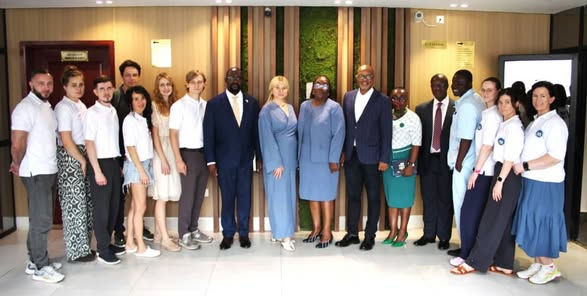The Ministry of Health (MoH), in collaboration with the National Public Health Agency (NPHA) through the Expanded Program on Immunisation.
- Paul Mansaray
- Nov 28, 2024
- 2 min read
held a one-day orientation meeting at the Emergency Operational Center (EOC) in Freetown. The meeting was attended by the District Social Mobilisation Committee Chairperson (DSMC), District Health Committee Chairperson (DHCC), Community-Based Organisations (CBOs), and Civil Society Organisations (CSOs).
The orientation aimed to update stakeholders on the switch from two doses to one dose of the Human Papilloma Virus (HPV) Vaccine, following recommendations from the National Immunization Technical Advisory Group Sierra Leone (NITAG-SL). Participants were briefed on their roles and responsibilities in promoting community engagement, intervention policies, guidelines, and strategies to improve vaccination coverage in the district. Interactive sessions were held to address any concerns or challenges faced by stakeholders in implementing HPV vaccine immunization and other immunisation programs.

Key partners, including the Global Alliance for Vaccines and Immunization (GAVI), United Nations International Children's Emergency Fund (UNICEF), Clinton Health Access Initiative (CHAI), and other partners who have supported this project, were acknowledged and appreciated for their efforts. The President of Sierra Leone, Dr. Julius Maada Bio, and his government, along with all Sierra Leoneans, expressed gratitude for the support provided by donor partners. This collaboration highlights the importance of joint efforts in enhancing public health initiatives and ensuring the success of vaccination programs.
The HPV vaccine has a significant impact on public health, providing long-lasting protection against cancers caused by HPV. It is particularly valuable for preventing cervical cancer in women and other HPV-related cancers in both men and women. The vaccine is targeted at young adolescent girls, specifically those aged 10 years. The Multi-Age Cohort includes girls aged 11-18 years, ensuring they are protected before potential exposure to the virus. The reduction in HPV infections and related cancers underscores the vaccine's effectiveness and the importance of widespread immunization.
Overall, the orientation meeting served as a platform for collaboration and coordination among key partners, aiming to increase awareness of HPV vaccines within their communities. The Ministry of Health, through its dedicated efforts and the support of various stakeholders, continues to strive for improved vaccination coverage and better health outcomes for all.




Comments